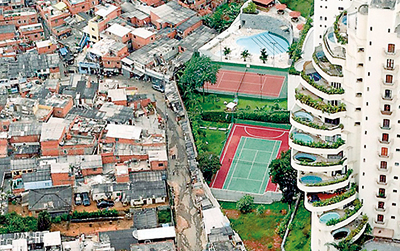CEPA annual symposium: A new recipe for poverty analysis
View(s):Development is like a kottu roti, says Udan Fernando, a senior professional at the Centre of Poverty Analysis (CEPA) in Sri Lanka. It’s an analogy he believes explains how the word as we know it today encompasses myriad ideas and approaches – some not as fresh or relevant as they should be. “A lot of the ideas of what development means are stale,” says Udan, “but like a kottu we keep warming them up and serving them. We need to continue the analogy, a new recipe, new ingredients or an entirely new menu even.”

For their 11th annual symposium on poverty CEPA is changing their approach a little. The emphasis has shifted from academics and research to an exchange of ideas, says Udan. The two day event kicks off with a conversation on ‘Rethinking Development.’ The hour long inaugural session is open to the public and features three speakers. Other panels (some by registration only) discuss development from the perspective of environmentalists and artists, as well as from that of feminists. (For the session on development in art, panellists will explore how notions of development are promoted and reflected in works of art, in particular in local cinema.)
Considering the beautification programmes in Colombo, local audiences will be interested to see what the session on ‘Development and the City’ on day two turns up. “We’d like to look at all the development that is happening from a critical point of view,” says Udan, referring to the great need in post-war Sri Lanka for thoughtful, considered development, particularly in the way poverty is understood and addressed within the wider context. Of particular concern is the growing inequality evident in our society. A synthesis of the key ideas from the sessions and a dialogue with policy makers (both of which are open to the public) completes the programme. Also of interest is a performance titled ‘Re-imagining Development through visual and performance arts’ that will take place on the first day.
“Development cuts across all ideological boundaries,” says Udan, explaining that most modern nations pursue development and judge their progress on the basis of economy and infrastructure. However, that approach can leave entire communities marginalised and even worse off than they were before. With their symposium, CEPA hopes to give many voices a space in which to express themselves but are aware that their delegates may not see eye to eye – in fact that might be part of the plan, a way to ensure that the conversations challenge status quo yet remain inclusive. While they hope policy makers will be interested in the conversations at the event, this is also an opportunity to engage civil society, drawing us all into the debate. “Inspiration is our main goal,”’ says Udan, adding that CEPA sees the symposium as a chance to “dream together.”
CEPA’s annual symposium will be held in Colombo at the Mihilaka Medura, BMICH on December 11 and 12. Those wishing to register or requiring more information can contact CEPA on reimagine@cepa.lk
Follow @timesonlinelk
comments powered by Disqus





















